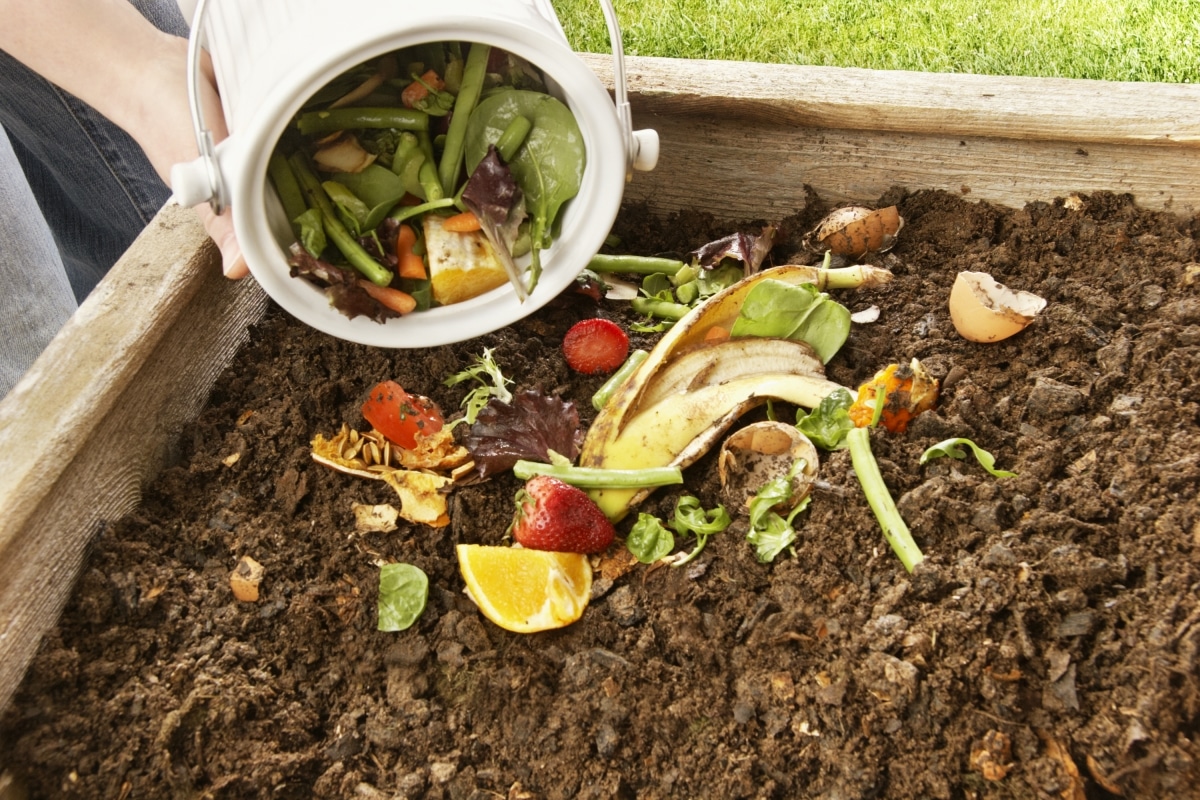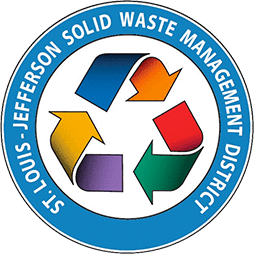
Tips & Facts
- Did you know the leading cause of landfill pollution is methane gas from food decomposition? Composting reduces those methane emissions.
- About 30% (by weight) of St. Louis City’s residential trash is food and yard waste. (Most recent MO Waste Composition Study)
- Composting reduces the need for chemical fertilizers and encourages the production of beneficial bacteria and fungi.
- Collecting food scraps is easy! All you need is a small container on your counter with a lid.
- Properly managed compost does not smell! By emptying your food scraps container regularly, you avoid the smell of rotting food. To avoid flies and to minimize odors, bury green materials under brown.
- You want to have a ratio of 2 parts compostable browns and 1 part compostable greens in your compost bin. Compostable greens are nitrogen rich and moist. Compostable browns are carbon rich and dry.

Managing Your Compost Bin/Pile
- Bins must have air flow. Proper air circulation is critical to the composting process and reduces the smell.
- Bins should be made of sturdy materials like wood and no smaller than 3x3x3 ft.
- Keep it full enough to retain internal heat. The more you add to your pile at one time, the more it will heat up. In other words, one “super-sized” meal is better than several smaller snacks.
- Keep your bin in a shaded area if possible because your compost will need to maintain moisture in order to decompose.
- Moisten the compost with water and keep damp at all times.
- Turn the compost pile weekly with a shovel or pitchfork.
- Compost is ready to use in your garden, lawn or flower pots once it is dark and rich in color.
- You can compost without a bin by burying your food scraps for a year. (See link one below for details.)
- If you have no outdoor space, you can compost in a bin with worms.
- If you live in an apartment or can’t manage your own compost, check if there is a drop off site at your local community garden or if you can take it to a friend who composts.
Click here for more details on the different methods of composting and which is right for you.
Looking to buy or build a compost bin? Visit StopWaste.org
To take your composting to the next level, check out these advanced composting tips.
Have more questions about composting? See these blogs on Earth911.org










2 Comments
Where in St. Louis can I take industrial composting
Try contacting St. Louis Composting for industrial compost. Thanks!
1 Trackback